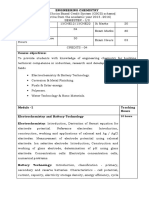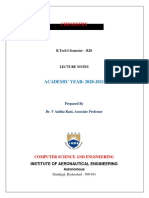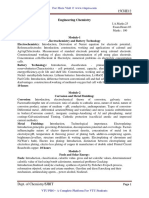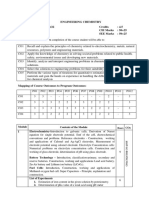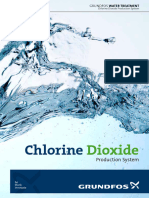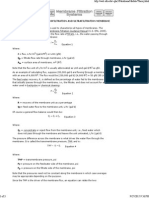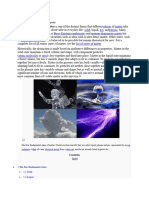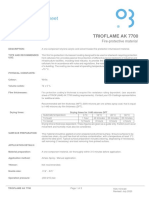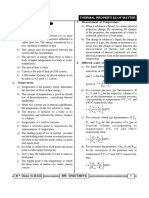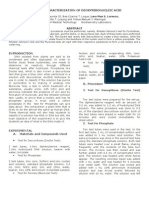Global academy of Technology
Department of Chemistry
Module Wise Question Bank
Applied Chemistry for CSE Stream-BCHES24102
MODULE-1
Electrochemistry and Corrosion Engineering
1. Define the terms i) EMF of a cell ii) Single electrode potential
2. Define Reference electrodes. Explain construction and working of Calomel
electrode. Mention its applications.
3. Define Ion selective electrode. Explain the construction and working of Glass
electrode.
4. Explain the determination of PH of a solution by using glass electrode.
5. Define Concentration Cells? Explain the construction and working of concentration
cells with example.
6. Summarize the electrochemical theory of corrosion by taking iron as an example.
7. Explain differential metal corrosion with suitable examples.
8. Account for the following factors affecting the rate of corrosion:
• Anodic and Cathodic areas
• Nature of corrosion product
• pH of the corrosion medium
9. What is Cathodic Protection. Explain Sacrificial Anode and Impressed current method.
10. Explain the type of corrosion occurring in the following scenario
• Nut and bolt made up of different metals
• An iron nail partially drilled in the wall
• A copper washer is in contact with steel bolt
• A steel tank is partially filled with water for some days
• A steel metal wire is bent and exposed to the corrosion atmosphere.
Module-2
Conventional and Green Energy systems
1. Explain following battery characteristics- i) Voltage ii) Capacity iii) Shelf life
2. Define Battery? Discuss the classifications of battery with example.
3. Summarize construction, working and applications of Li-ion battery.
4. Summarize construction, working and applications of sodium-ion battery
5. Explain battery recycling process.
6. Explain production and advantage of biodiesel.
7. Write short note on: i) CNG ii) Biogas.
8. Enumerate synthesis of green hydrogen by electrolysis of water.
9. State band theory of conductors, insulators and Semiconductors.
10. Explain construction, working and applications of silicon based photovoltaic cell.
11. Summarize production of electronic grade silicon by Czochralski process.
12. What are super capacitors? Explain its types.
13. What are super capacitors? Mention its and applications.
� Module-3
Materials for Memory and Display systems
1. What are memory devices? Explain the classification of electronic memory devices
with examples.
2. What are organic semiconductors? Explain its types.
3. Summarize types of organic memory materials.
4. Define liquid crystals. Distinguish between thermotropic and lyotropic liquid crystals.
5. Explain the molecular ordering w.r.t Nematic liquid crystals.
6. Summarize molecular ordering in smectic liquid crystals.
7. Mention the properties and applications of liquid crystals.
8. Explain constructions, working and applications of QLED?
9. Explain the constructions, working and applications of OLED?
10. Explain the constructions, working and applications of LEC?
11. Write a note on photoactive materials and electroactive materials
Module-4
Material Science: Polymers and Nanomaterials
1. Explain synthesis, properties and applications of PMMA.
2. Explain synthesis, properties and applications of Polyurethane.
3. What are polymer composites? Mention the synthesis and applications of Kevlar
fiber.
4. What are polymer composites? Mention the synthesis and applications of carbon
fiber.
5. Explain mechanism of conduction in conducting polyaniline.
6. Define nanomaterials. Mention applications of nanomaterials.
7. Explain the synthesis of nanomaterials by solution combustion process.
8. Explain the synthesis of nanomaterials by hydrothermal method.
9. Write short note on: i) CNT ii) Fullerenes.
Module-5
Environmental Chemistry and water Technology
1. List out the sources, effects of oxides of carbon, nitrogen and sulphur.
2. Summarize the construction, working of 3-way catalytic converter for controlling the
oxide of carbon and nitrogen.
3. Explain the Calsox process for controlling the oxides of sulfur in the environment.
4. What is meant e-waste. Mention its source, composition and its effects on human
health and environment.
5. What is meant by e-waste. Explain the extraction of metal from e-waste by
hydrometallurgical process.
6. What is meant by e-waste. Explain the extraction of metal from e-waste by
pyrometallurgical process.
7. Write a note on biomedical management.
8. Define hard water. Explain experimental determination of total hardness of water.
9. Define COD. Explain experimental determination of COD of industrial waste water.
10. What is meant by desalination of water? Explain desalination of water by reverse
osmosis process.








